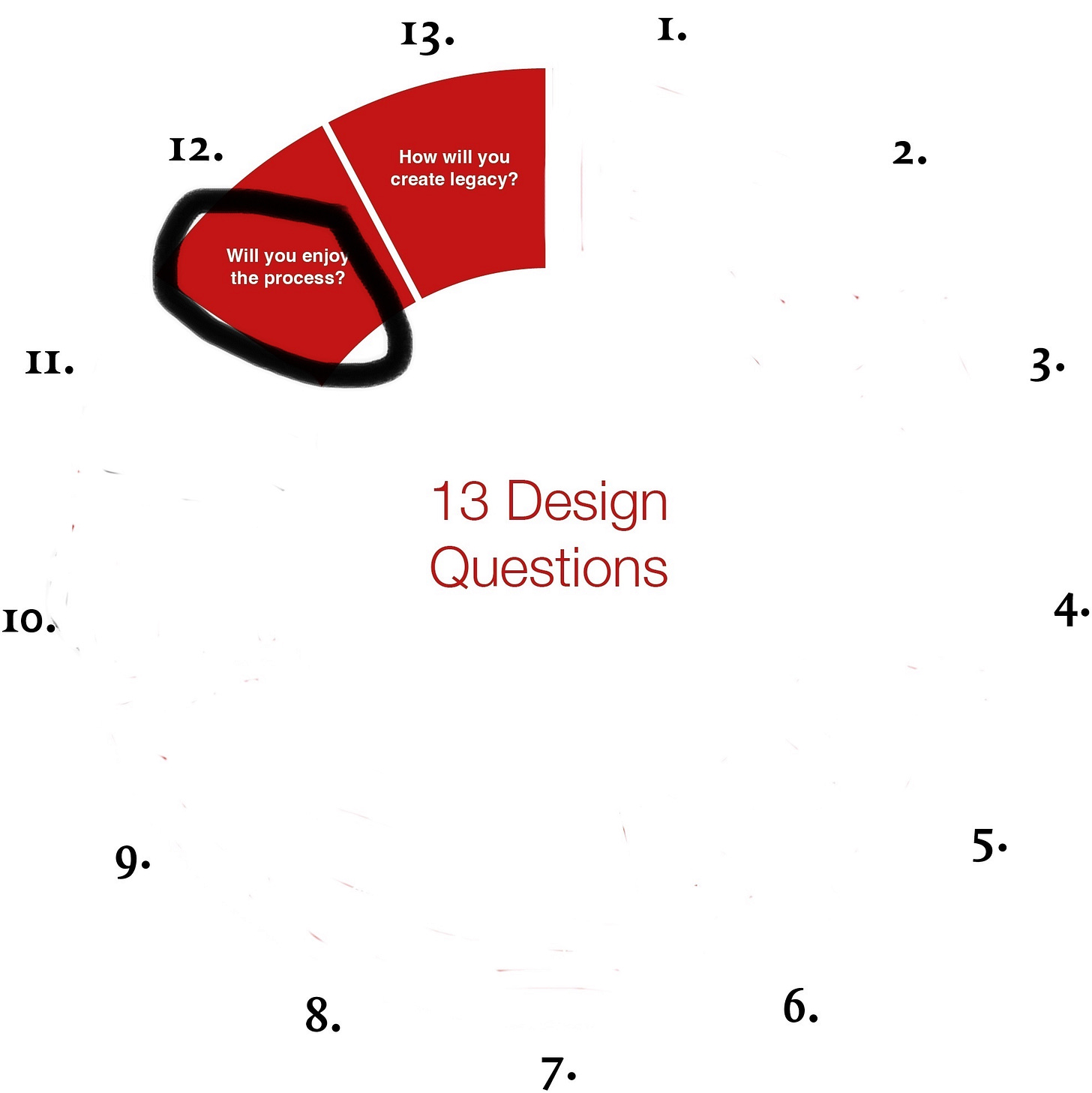New Artisans - enjoying the process?
Day 12 of Alan Moore's 13 Design Questions
I think we often strive for the right question and look for the perfect answer.
The trouble is, a lot can happen while we’re waiting and searching. Progress and growth rarely happen in leaps but rather in continuous tiny increments with occasional spikes. We can’t have the spikes without the increments, so the only questions we need are the ones that cause us to start.
That is why I think Alan’s questions are so important. They are a place to start. How we develop them and where we let them take us is down to us.
And questions are not where we start. I have a favourite quotation that I keep in my eye line as a reminder:
“The best way to find out things, if you come to think of it, is not to ask questions at all. If you fire off a question, it is like firing off a gun; bang it goes, and everything takes flight and runs for shelter. But if you sit quite still and pretend not to be looking, all the little facts will come and peck round your feet, situations will venture forth from thickets and intentions will creep out and sun themselves on a stone; and if you are very patient, you will see and understand a great deal more than a man with a gun.”
― Elspeth Huxley, The Flame Trees of Thika: Memories of an African Childhood
For me, the act of observation is the foundation of enjoying the process of discovery and resolution. Answering complex questions without understanding their context is an exercise in futility because often, the problem doesn’t understand how it came to be either. Solving a problem is a dance, not an exercise in force, and we have to enjoy the dance. Because the problem is never “out there”:
“But we do not ask. We want to be told. One of the most curious things in the structure of our psyche is that we all want to be told because we are the result of the propaganda of ten thousand years. We want to have our thinking confirmed and corroborated by another, whereas to ask a question is to ask it of yourself.”
~J Krishnamurti
Artisans ask questions of themselves that no one else can ask, and the joy of what we do derives from the fact we are answering our own questions, not somebody else’s.
“A finite game is played for the purpose of winning, an infinite game for the purpose of continuing the play.”
― James P. Carse, Finite and Infinite Games: A Vision of Life as Play and Possibility
Enjoyment, the embodiment of joy, comes from playing the long game and enjoying the process, including all the frustrations, failures and setbacks of some of the finite games. (And for those of a cricketing persuasion, this last Ashes series is a wonderful example. The idea of the Ashes is alive and very, very well)
New Artisans is a current finite project within an infinite game of discovering who we are, what we might do, and the joy that comes with it.



Love that Huxley quote. This entry in particular feels universally applicable.